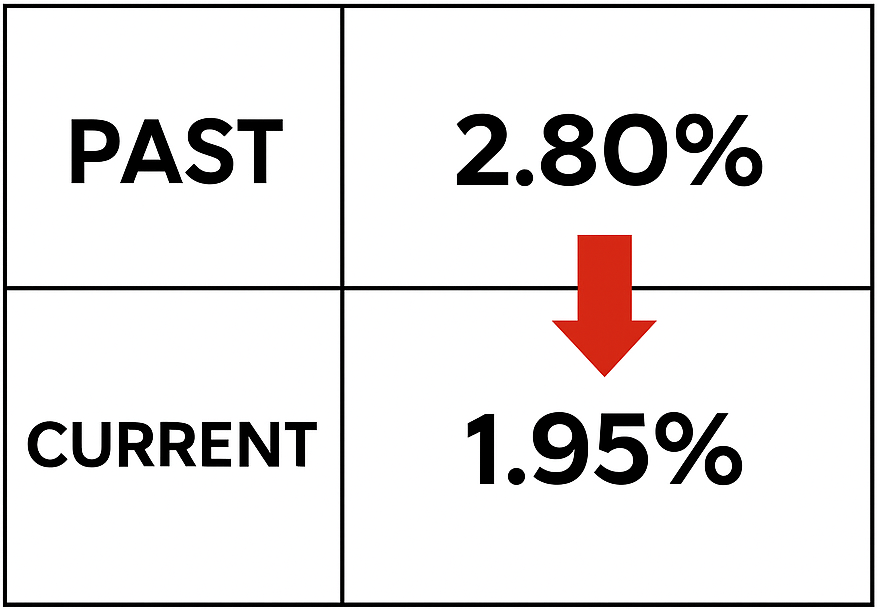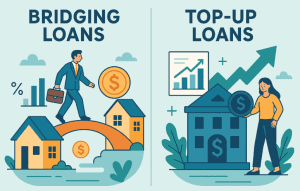Still paying high interest on your home loan? In 2026, that’s like throwing money away.
With SORA rates changing and banks offering new promos, now’s a good time to look into refinancing — especially if your lock-in period is ending soon. Whether you’re in a HDB or private property, refinancing can help you save big over the long run.
But, it’s not just about finding the lowest rate. Got legal fees, penalties, and all the small fine print to consider.
This guide will walk you through everything step by step — simple, straight to the point, and Singaporean-friendly.
Expert Tip: Just a 0.5% drop in your rate can save you tens of thousands. Want to see how much? Use this refinance calculator.
What Is Mortgage Refinancing?
If you’re paying off a home loan in Singapore, chances are you’ve heard of mortgage refinancing. But what does it really mean — and is it worth the hassle?
Refinancing is one of the most powerful ways to save money on your property in 2026. With SORA-based home loans now the norm, many banks are offering competitive refinance packages. The key is knowing when to switch, what to compare, and how to avoid the fine-print traps.
What is refinancing and how does it work in Singapore?
Mortgage refinancing means replacing your current home loan with a new one — usually to enjoy better interest rates, more flexibility, or even to cash out equity.
You can refinance with a new bank or stick to the same one. Either way, the bank will pay off your old loan and start a new one, often with fresh terms and a revised repayment timeline.
Expert Tip: If your home loan is more than 2–3 years old and you’ve never reviewed it, you’re probably paying more than you should.
Why do homeowners choose to refinance their mortgages?
The most common reason? Lower monthly repayments. But refinancing can also help you:
- Switch from floating to fixed rate (or vice versa)
- Stretch out your loan tenure to ease monthly cashflow
- Tap into home equity for reno, investment, or kids’ education
- Leave HDB loan for a private bank loan at lower interest
Some homeowners also just want better service — or to avoid rising SORA rates.
Personal Tip: One client refinanced his condo loan through a broker and shaved $300/month off his repayments — just by switching from a board rate to a SORA package. Worth checking!
When is the right time to consider refinancing your home loan?
Here’s when Singapore homeowners usually start shopping for a better deal:
- End of lock-in period (no penalty!)
- Rate hike worries — want to lock in before things rise again
- Post-upgrade — like moving from a 4-room HDB to a condo
- 2–3 years after loan starts — when promo rates typically expire
A good time to check? Right now. You can run your numbers with this mortgage refinance calculator — fast and fuss-free. And if you want help comparing banks, the team at Ace Mortgage does this daily — and at no cost to you.
What Is Home Loan Repricing?
Repricing is often the quieter cousin of refinancing — but in the right situation, it can be just as effective.
Unlike refinancing, which means switching banks, repricing your home loan means staying with your current bank and switching to a better loan package they offer. It’s a more convenient move, usually with fewer fees and less paperwork.
You can also browse their HDB home loan and condo loan guides to see what works best for your property type.
What does repricing your home loan mean?
Repricing lets you adjust your existing loan to a new package from the same bank. You don’t change lenders — just the terms.
Most banks will allow repricing after the lock-in period ends, and some even offer free repricing options once during your loan tenure. You’ll typically get to choose between updated fixed or floating rate plans based on current market conditions.
Expert Tip: Repricing often skips legal fees — which means lower upfront cost. But don’t assume your bank’s best offer is the market’s best. Always compare — this mortgage broker service helps you check multiple banks, including DBS and OCBC, without you doing the legwork.
Why might you choose to reprice instead of refinance?
For many homeowners, repricing is about convenience and cost.
Here’s why some prefer repricing over refinancing:
- No need for legal or valuation fees
- Faster process — no switching banks
- Lower upfront hassle, especially if you’re happy with your bank
- Sometimes offered as part of loyalty perks or internal promos
It’s a solid option if you just want to lower your rate without going through the full switcheroo.
From experience: One couple I spoke to shaved 0.4% off their rate just by calling their bank and asking for a repricing. No forms, no fuss — just asked nicely. Still, always good to benchmark with what’s outside — you can check current offers from UOB, private property loan packages, or use their refinance calculator to compare.
When is repricing your home loan a good idea?
Repricing makes the most sense if:
- You’re past your lock-in period
- Your bank is offering new SORA packages or limited-time deals
- You don’t want to incur legal fees
- You’re okay with staying at the same bank, as long as the rate improves
If your goal is to save without switching, repricing might do the trick. Just make sure to review how it stacks up against refinancing deals elsewhere.
You can explore more in this refinance guide, or check blog articles like how SORA affects mortgage decisions for real market insight. And if you’re ready to compare, just reach out to Ace Mortgage — they’ll do the checking for you.
Repricing vs Refinancing — What’s the Difference?
Both repricing and refinancing help you lower your home loan interest — but they’re not the same thing.
Repricing means switching to a new loan package with your existing bank.
Refinancing means moving your loan to a different bank altogether.
Each has its pros and cons. What’s best for you depends on your goals, timeline, and how much effort you’re willing to put in.
Which is cheaper: refinancing or repricing?
In terms of upfront cost, repricing is usually cheaper. You avoid legal, valuation, and conveyancing fees — which can run into the thousands.
But in the long run? Refinancing often offers lower interest rates, especially if you compare across banks like UOB, OCBC, or DBS. Some even offer cash rebates to cover your legal fees.
Expert Tip: Don’t just look at the headline rate. Always calculate your total cost over 3–5 years using a tool like this mortgage calculator — then decide.
How do lock-in periods affect your choice?
If you’re still under a lock-in period, repricing might not even be available yet — and refinancing could trigger hefty penalties.
Most banks in Singapore enforce a 2–3 year lock-in clause. Break it early and you’ll likely pay a 1.5% penalty on your outstanding loan.
That’s why it’s smart to plan ahead. Start comparing options at least 3–6 months before your lock-in ends. You can use this step-by-step refinancing guide for HDB owners or read up on tips in Ace’s mortgage blog to prepare early.
Can you switch between repricing and refinancing later?
Yes, and many homeowners do just that.
Some start with repricing for convenience, then refinance later for better long-term savings. Others try refinancing first, then reprice with their new bank once the lock-in ends again.
There’s no fixed rule — it’s all about timing and flexibility. Just make sure you’re aware of the fine print, like clawback periods or legal subsidy conditions.
Personal Note: One of my clients repriced first to avoid legal fees, then refinanced a year later to take advantage of a promotional SORA package. Ended up saving close to $20K.
Need help planning the switch? This mortgage broker service is a great way to get expert advice without the pressure to commit.
Key Costs to Know Before You Refinance
Refinancing sounds great when you see a lower interest rate — but don’t forget the upfront costs. A good deal only makes sense if the savings outweigh the fees.
Here’s what you need to look out for before signing that new loan agreement.
Refinancing Fees in Singapore: What You’ll Need to Pay
| Fee Type | Estimated Range |
|---|---|
| Legal Fees | $1,800 – $2,500 |
| Valuation Fees | $150 – $500 |
| Disbursement Fees | ~$200 |
| Fire Insurance | Bank-specific |
Some banks offer cash rebates (usually $2,000) to offset these costs — but only for loans above a certain amount. You can check out current promos viaAce Mortgage’s bank loan comparison or speak to theirbroker team to see which lenders are offering subsidies in 2026.
Do you need to pay legal or valuation fees?

Yes — unless you’re repricing.
Legal and valuation fees are mandatory when refinancing to another bank. These cover the paperwork to discharge your existing mortgage and set up the new one.
Expert Tip: Some banks absorb legal fees through cash rebates, but be careful — if you refinance again within 3 years, they might claw back that rebate.
If you’re switching from HDB to a bank loan, this HDB refinance guide explains which fees apply and how to reduce them.
Are there hidden charges or penalties to watch for?

Yes — and they’re easy to miss.
Watch out for:
- Lock-in penalties (up to 1.5% of your loan) if refinancing early
- Clawback of legal subsidies if you refinance again too soon
- Cancellation fees if you back out after signing the Letter of Offer
Some borrowers also forget about fire insurance and mortgage insurance costs, which can differ across banks. Use this repayment calculator to factor in these extras before committing.
Pro tip: Always ask for the full cost breakdown — not just the interest rate. A slightly higher rate with zero fees could actually be cheaper in year one.
How to Refinance a Home Loan in Singapore
Refinancing might sound complex, but the actual process is pretty straightforward — especially if you’ve got help. Once you’ve decided to switch banks, the next steps are mainly paperwork and timing.
Here’s what to expect.
What steps are involved in the refinancing process?

The process can be broken down into 5 main steps:
- Check your lock-in status — Make sure you won’t be hit with early penalties.
- Compare loan packages — Look at interest rates, fees, and perks.
- Apply with the new bank — Submit your documents and await approval.
- Legal discharge — Appointed lawyers will handle the switch.
- Start repaying your new loan — Typically from the next month onwards.
You can get help at every step with a mortgage broker — they’ll even handle the paperwork for free. Or use this step-by-step guide to refinancing to get a full walkthrough.
How long does the process typically take?
Refinancing usually takes 4 to 8 weeks, depending on:
- How fast you submit your documents
- Bank’s internal processing time
- Lawyer’s schedule for legal discharge
Expert Tip: If your lock-in ends in 2–3 months, start now. Most banks let you lock in today’s rate up to 90 days in advance — useful if you think rates will rise.
Need to refinance fast? A broker can often speed things up by liaising with both your old and new bank at once.
What documents will you need to prepare?

Get these ready to avoid delays:
- Latest Notice of Assessment (NOA) from IRAS
- 3 months’ CPF contribution history
- Recent income payslips
- Current loan statement from your existing bank
- NRIC (front and back)
If you’re self-employed or running a business, you’ll also need your ACRA biz profile and 2 years’ worth of NOAs.
For full clarity on what each bank needs (some have slight differences), refer to this bank loan guide or check their condo loan page if you’re holding a private property.
Choosing the Best Bank for Refinancing in 2026
Rates are shifting fast this year, and every bank is trying to win your business with flash deals and SORA-pegged packages. Picking the right bank can save you thousands — but it’s not just about who offers the “lowest rate”.
Let’s break it down.
What are the latest mortgage rates from top banks?
As of lately, most banks are offering:
- Floating SORA rates from ~2.00% p.a.
- Fixed rate packages ranging between 125%–2.50% p.a.
Some banks, like UOB, offer hybrid plans where part of your loan is fixed and the rest floats — good for those wanting balance between stability and flexibility.
Want a quick side-by-side rate view? Ace Mortgage updates rates across multiple banks weekly, saving you the hassle of checking each bank one by one.
Fixed Rate Home Loan Comparison (Singapore – May 2025)
| Bank | Rate | Tenure | Min Loan |
|---|---|---|---|
| DBS | 2.55% | 2 / 3 / 5 Years | $100,000 |
| OCBC | 2.60% | 2 / 3 Years | $100,000 |
| UOB | 2.58% | 3 Years | $100,000 |
| HSBC | 2.68% | 2 / 3 / 5 Years | $200,000 |
| MayBank | 2.50% | 5 Years | $100,000 |
Floating Rate Home Loan Comparison (Singapore – May 2025)
| Bank | Rate | Tenure | Min Loan |
|---|---|---|---|
| DBS | 2.90% | No Lock-in / 2 Years | $100,000 |
| OCBC | 2.85% | 2 Years | $100,000 |
| UOB | 2.95% | 2 Years | $100,000 |
| HSBC | 2.80% | No Lock-in | $200,000 |
| MayBank | 2.80% | 2 Years | $100,000 |
What promotions or subsidies are banks offering now?
To attract refinancers, many banks in Singapore are offering:
- Cash rebates of up to $2,000 for legal fees
- Valuation fee waivers
- Free repricing in future (for select packages)
- Priority processing for loan switching
Keep in mind that these promos change fast. A deal from DBS or OCBC today might not be there tomorrow. Always confirm before locking in — or get help from a broker who tracks these deals daily.
You can also see current HDB-to-bank switch offers in this refinance HDB guide, especially useful if you’re planning to move away from your HDB loan.
How do SORA-pegged packages compare across banks?
While most banks now use SORA as the benchmark, their margins and lock-ins differ:
SORA Rate Comparison Across Banks in Singapore (2025)
| Bank | Typical SORA Margin | Lock-In Period | Notes |
|---|---|---|---|
| DBS | +0.80% | 2–3 years | Often offers longest lock-in |
| OCBC | +0.85% | 2 years | May bundle fire insurance |
| UOB | +0.75% | 2–3 years | Tends to allow partial prepay |
SORA itself is published daily by MAS, but the bank’s margin decides your final rate. A seemingly small 0.10% difference in margin can make a huge impact over 20–30 years.
From experience: Some clients choose UOB for flexibility, others go with DBS for the stability of fixed-rate options. Best to compare and match your goals. Want a guide that breaks it down further? Try this private property loan page — especially helpful if you’re moving from an HDB flat to a condo.
Should You Use a Mortgage Broker?
Not sure which bank to pick, or whether refinancing is even worth it?
That’s where a mortgage broker comes in. In Singapore, brokers help match you with the best loan — without charging you a cent. Still, many homeowners skip this option, thinking it’s only for first-time buyers. Big mistake.
Let’s unpack what brokers can really do for you.
What advantages do brokers offer when refinancing?

A good broker helps you:
- Compare loan packages across multiple banks
- Spot hidden clauses, like clawbacks or repricing restrictions
- Speed up the paperwork and liaise directly with banks
They often have access to exclusive rates and promotions not found on public bank websites. This includes cash rebates, legal subsidies, or fast-track approval lanes.
Expert Tip: If you’re time-starved or overwhelmed by choices, working with a mortgage broker like Ace Mortgage can save you both money and stress. They work with banks like DBS, UOB, and OCBC, so you won’t miss out on better deals.
Are there any downsides or costs involved?
In most cases, no cost to you. Brokers are paid by the banks — not the borrower.
That said, not all brokers are equal. Some may push you toward a bank they have better commission from. Others might gloss over important fine print just to close the deal faster.
To stay safe:
- Ask upfront if they work with all major banks
- Clarify if they disclose all available rates, not just selected ones
- Get fee structures in writing, even if it’s “$0”
How to choose a trustworthy mortgage broker in Singapore?
Here’s what to look for in a reliable broker:
- Works with all major lenders, not just 1–2
- Transparent, responsive, and non-pushy
- Offers follow-up support (e.g. repricing alerts)
- Has positive reviews or testimonials
Personal Tip: A good broker won’t just help once — they’ll remind you when to reprice or refinance again in a few years. That kind of long-term support is priceless.
Ace Mortgage checks all those boxes. You can contact them directly here or browse their blog for helpful refinancing tips before reaching out.
Refinance Case Studies and Scenarios
Still not sure if refinancing is worth the effort? These real-life case studies show how much Singapore homeowners can actually save — and when it might not make sense to make the switch.
How much did this HDB owner save by refinancing?
Jason, a 38-year-old engineer, was on a HDB loan at 2.6%. After 5 years, he refinanced to a bank loan at 1.9% (back when SORA rates were lower).
Monthly savings: ~$240
Total savings over 5 years: ~$14,000
He used a mortgage broker to compare packages, and his legal fees were fully covered by the bank’s cash rebate.
You can read more about this process in Ace’s HDB refinancing guide — includes what to prepare and how to avoid hidden fees.
Private condo refinance: fixed vs floating package

Melissa owns a resale condo in the OCR and had to decide between a fixed rate of 3.50% and a SORA-floating package starting at 3.05%.
She picked the floating package — but added a cash buffer in case rates rose. Within a year, her interest crept up to 3.35%, but she was still paying less overall.
Expert Insight: If you can tolerate some rate movement and want flexibility, SORA packages often win out. Want a bank-by-bank breakdown? Visit the private property loan page to see what works for you.
Should you refinance if you plan to sell your home soon?
Maybe not.
If you’re planning to sell within the next 1–2 years, refinancing could cost more than it saves — especially if you’re locked in again or have legal fee clawbacks.
But if your current rate is much higher than market rates, short-term refinancing could still make sense. Use this mortgage calculator to do the math based on your remaining loan tenure.
Pro tip: Always check the minimum lock-in and clawback periods before committing. And if you’re unsure, ask a broker to help assess whether it’s worth the switch — the Ace team can advise with no obligation.
FAQs on Refinancing and Repricing in Singapore
Got questions? You’re not alone. Here are some of the most common things Singapore homeowners ask when it comes to refinancing and repricing — with straight answers, no jargon.
Can you refinance more than once?
Yes, absolutely. There’s no limit to how many times you can refinance your home loan in Singapore.
Many homeowners refinance every 2 to 3 years, especially when promotional rates end or market interest rates change. The key is to make sure that the savings justify the costs involved — especially legal fees or any lock-in penalties.
You can use this mortgage repayment calculator to check if refinancing again makes sense based on your loan size and interest difference.
Expert Tip: If you refinance frequently, make sure you’re not triggering a legal subsidy clawback from your previous bank — some require you to stay for a minimum period after accepting their rebate.
What happens if you refinance during a lock-in period?
Refinancing during a lock-in period will usually trigger a penalty fee, commonly around 1.5% of your outstanding loan amount. That can add up to several thousand dollars.
However, in rare cases, your new bank may offer a rebate to offset the penalty, or you might accept the fee if your new interest rate brings significant long-term savings.
Best move? Time your refinancing to start right after your lock-in ends. Brokers can help you apply early and lock in a future start date — up to 3 months in advance. Learn how that works in this refinance guide or check out advice in their mortgage blog.
Is refinancing suitable for all property types?

Yes — whether you own:
- An HDB flat
- A condo or landed home
- A commercial property
Refinancing applies across the board. The only difference is the loan size, available packages, and eligibility rules. For example:
- HDB flat owners can switch from HDB loans to bank loans using this HDB refinance guide.
- Condo owners may benefit from flexible SORA-linked packages listed under condo loans.
- Commercial property owners can explore options on the commercial property loan page.
From experience: Refinancing works especially well if your current rate is >3.5% and your property has appreciated in value — you may even unlock equity in the process.
What’s the Future of Home Loan Refinancing in Singapore?
The refinancing landscape is evolving fast — and homeowners in Singapore need to keep up. With inflation, rate hikes, and policy shifts in play, knowing what’s coming next can help you time your next move right.
How will MAS interest rate policies affect refinancing?
The Monetary Authority of Singapore (MAS) doesn’t directly set mortgage rates, but its monetary policy has a big influence. As MAS tightens or eases its stance to fight inflation, SORA tends to react — which in turn impacts your floating home loan rates.
If MAS maintains a strong Singapore dollar stance to curb inflation, interest rates may stay elevated through 2026. That makes fixed rate refinancing more attractive — especially if you value predictable monthly payments.
Expert Note: You can monitor MAS updates here, or check Ace’s mortgage blog for simplified updates on how policy shifts affect home loans.
Will SORA continue to dominate mortgage packages?
Yes. SORA (Singapore Overnight Rate Average) has fully replaced SIBOR and is now the benchmark for almost all new mortgage packages in Singapore.
Banks now offer:
- 3M Compounded SORA packages
- Fixed rate options for 1–3 years
- Occasionally, hybrid products (part fixed, part floating)
SORA is transparent and backed by MAS, but it does move with the market — so expect fluctuations. The key is comparing bank spreads (the margin added to SORA), which you can do on Ace’s private property loan page.
What should borrowers expect in 2026–2027?
Here’s what you can likely expect over the next 12–24 months:
- Interest rates may stay above 3% if global inflation lingers
- More homeowners will refinance to fixed or hybrid loans
- Banks may offer short-term promos with rebates to attract switchers
- Tools like refinance calculators will become standard for decision-making
From experience: Borrowers who plan ahead — comparing rates before their lock-in ends — almost always end up saving more. Don’t wait till you’re stuck.
Final Thoughts and What You Should Do Next
Now that you’ve seen the full picture — from interest rates to bank comparisons — the big question is: what’s your move?
Let’s break it down one last time.
Should you reprice, refinance, or stay put?
Here’s a quick cheat sheet:
- Reprice if you want something fuss-free and are happy with your current bank.
- Refinance if you’re chasing the best rate and willing to switch banks.
- Stay put only if you’re mid-lock-in and your current rate is still competitive.
If your loan is 2+ years old, it’s time to review. Don’t wait for your bank to call — they usually don’t.
Need help comparing your options? Start with this refinancing guide or use the calculator to see if switching makes sense.
What’s the best next step for your loan in 2026?
Here’s what we recommend:
- Check when your lock-in ends.
- Use a calculator to estimate savings.
- Decide if you want fixed or floating.
- Compare at least 3–4 banks — not just your own.
If this sounds like a headache, don’t stress — a mortgage broker can do all this for you (free of charge).
Here’s a tip, the best deals are often limited-time. Even a 0.3% rate difference can mean $10K+ in long-term savings.
Where to get expert help for your situation?
You don’t need to figure this out alone. Whether you’re holding a HDB, condo, or even commercial property, the team at Ace Mortgage can guide you step-by-step.
- They work with all major banks
- Offer real-time rate comparisons
- Handle all the paperwork (and legwork)
Still doing research? Start by reading their latest insights on the Ace blog — no hard selling, just solid advice.
Refinance Smart in 2026 — Don’t Let High Rates Eat Into Your Savings
Refinancing your home loan in Singapore doesn’t have to be confusing or stressful. With rising rates and evolving loan packages, 2026 is the year to take control of your mortgage — whether through refinancing, repricing, or just reviewing your current deal.
The key is to plan early, compare widely, and get expert support when needed. Even a small drop in your interest rate could mean tens of thousands saved over time.
Need help figuring it out? Let the Ace Mortgage team walk you through your options — from HDB to private property, they’ve got you covered.














